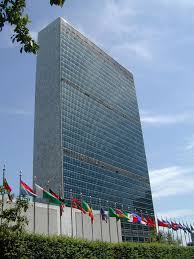A recent exchange between Eric Posner and Kenneth Roth in the New York Times on the effectiveness of international human rights treaties underscores a desperate need for more theory and more evidence about how international treaties “matter.” The debate is at the link above. Readers can form their own judgments. As I see it, there are four unanswered questions from this debate:
1) What does effectiveness mean?
As soft legal instruments with intentionally undefined key terms and often without mechanisms for enforcement, it can be difficult to demonstrate that human rights treaties change country behavior. We might wish to think that these treaties can actually do this, but it can also be argued that they were created for different purposes altogether. Some international human rights treaties (think about the Universal Declaration on Human Rights) were intended to disseminate aspirational norms. As a result, we can only think about “effectiveness” here in articulating a language of obligation rather than serving as a weapon against vicious despots.
As Roth rightly notes, the obsession with legal form should not take our attention away from what treaties actually do. They do create obligations on countries, but these obligations often are used as touchstones by both domestic and international civil society. In this sense, then, treaties “matter” by empowering non-state actors.
In short, we need more clarity about what we mean by effectiveness. The claims that treaties change behavior, treaties disseminate norms, and treaties empower domestic groups all imply different empirical metrics for assessment. Moving this discussion forward requires being clear about core concepts.
2) What are the alternatives?
It is, of course, impossible to argue that human rights treaties are uniformly capable of changing a state’s behavior. But I must agree with Roth that Posner’s claim that treaties don’t work (and that we need to get rid of them as a result) is not remotely compelling. What is most dangerous is the trojan horse of an uncompelling alternative that Posner offers us. He closes his first entry in the exchange with the following statement:
But more focused and pragmatic interventions, including relying heavily on foreign aid for economic development, rather than coercion or shaming, is the better way to go.
Several points are relevant here. It is difficult to claim that foreign aid is “pragmatic” given that we know that it is profoundly shaped by geopolitical biases. The US does just as much coercion and shaming with foreign aid as the human rights community does. More importantly, if you want to build a better mousetrap, you need to show the world that it works. There are profound analytical challenges in assessing whether foreign aid “works,” and yet all of these issues are conveniently glossed over by Posner. He argues that we should shoot our own horse and jump on to his without referencing a single study that foreign aid would be more effective. The evidentiary bar needs to be higher than a narrative solely based on the Chinese experience, which is hardly generalizable elsewhere.
3) What do we know about Universal Periodic Review?
Posner also mentions that there is “no method for evaluating whether governments act reasonably or not.” This overlooks the Human Rights Council’s Universal Periodic Review mechanism, which was created precisely for this purpose. While UPR is not without problems, it represented a deepening of UN involvement in country human rights practices by creating a surveillance mechanism. Some initial empirical analysis is quite positive, suggesting that the UPR process is helping to dissolve regional blocs. But more work is necessary here. We need to better understand the influence and the limits of UPR. Since we’re now into our second full cycle of country reviews, this means that our analysis can look to focused country comparisons.
4) Why sign these treaties in the first place?
There are two different narratives for why states sign human rights treaties in this debate. On one hand human rights treaties embody “utopian statements” (Posner). If this is true, then treaty signing is largely costless, and it’s no accident that countries sign these treaties to be part of a global bandwagon. But at the same time, rights are thought of as “expensive” and too daunting for states. As a result, states agree to obligations that they cannot possibly meet in practice. But if this were the case, then we might expect these standards to deter states from signing these treaties in the first place. Which of these stories is correct?
The important lesson is that we need a better understanding of why countries are signing these treaties. That’s an essential first step to thinking about their effectiveness, and a needed element in policy discussions of whether treaty law should be “soft” or “hard.” As a dialogue, then, this debate represents only the first word on this matter, and it’s clear that more theoretical and empirical work is needed to better frame how treaties matter and what can be done to strengthen them.
